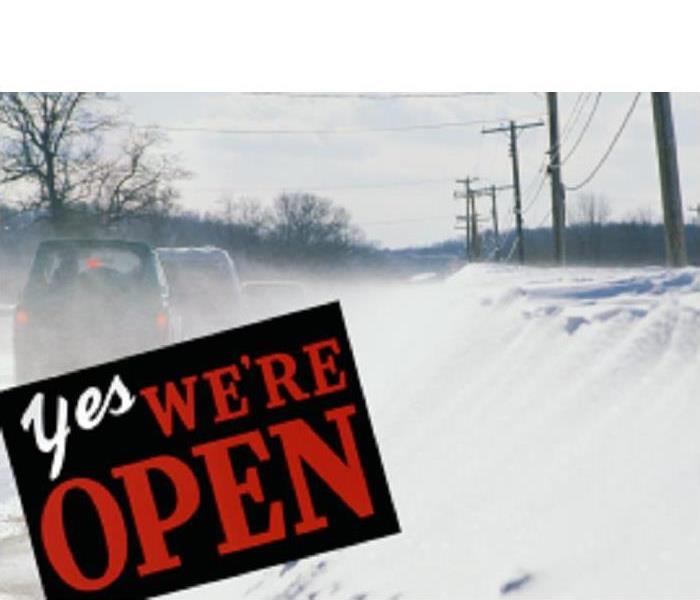Tips On Protecting Your Business for Cold Weather
12/5/2019 (Permalink)
5 TIPS FOR PROTECTING YOUR BUSINESS FROM COLD WEATHER
Plan, Plan and Plan some more. Making sure each employee knows their role and what is expected of them will save time and money. Go over with you staff on ways to prepare and what each person should be doing.
- Make detailed plans, well in advance. Schedule a meeting to discuss what needs to be done. Don’t just stick to what you’ve done in the past but try to think afresh about how to approach every aspect of bad weather planning.
- Find out the legal situation. Read up on employment policies on severe weather conditions so that you know what’s reasonable to expect of your staff and what’s not. The policies cover issues including entitlement to time off; entitlement to paid or unpaid leave; working from home; flexible working hours to avoid hour traffic and travel; and other provisions relating to your business and operational requirements.
- Staying at home doesn’t mean staying in bed. Home workers are often more efficient than office-based workers – and certainly more efficient than people who turn up after a three hour journey. With the right rules – and technology – in place you can make sure work gets done and make staff very grateful to you too.
- The right technology outside the office. You need to work this out in advance, or it won’t work. Make sure your employees know how to log onto the remote server.
- The right technology inside the office. Take in consideration if there is a power failure that will affect your internet service. Make sure to have up to date records of every member of staff’s mobile and home numbers so they can be reached in case you are not able to make it in.
- Communicate. Keep in touch with everyone throughout the course of the bad weather. Conference facilities and chat software can be really handy for keeping a “live” conversation going.
- Contingency planning. It might be worth considering cloud based solutions, even just as a back up, to ensure staff can access enough information to keep a skeleton service running.
- Encourage staff to plan ahead. It’s important to take into consideration the advice set out by the emergency services. If the police have issued a warning not to travel unless absolutely necessary, then this should be seriously considered. It’s crucial to assess what is reasonable risk for your employees and to advise them accordingly.
- Buy decent equipment. Encourage staff to put together “winter packs” for their cars, in case they become stranded. Buying snow tires in bulk for your vehicles early in the season could save money.
- Call in a Professional. You can’t know, or do, everything yourself. Sometimes it’s worth turning to the experts and listening to what they have to say. And do that early in the process, rather than in a last minute panic when people are trapped under snowdrifts trying to get to work, and you’re losing business because of it.






 24/7 Emergency Service
24/7 Emergency Service
